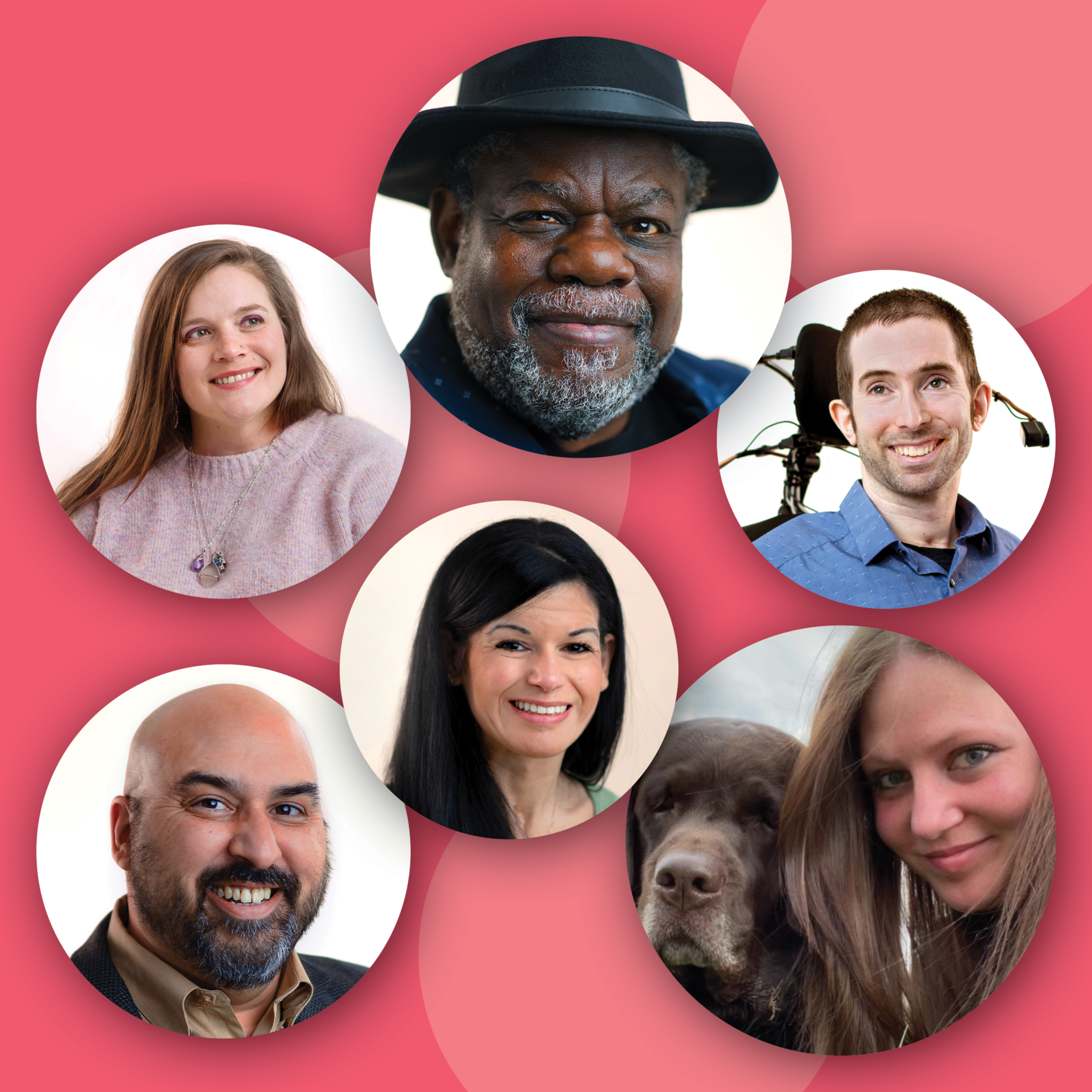- MassAbility

At MassAbility, we’re in the business of possibility. We work with individuals and partners to expand what’s possible in the lives of people with disabilities – and to bring down the physical and societal barriers that limit their potential. The Office of Learning and Community Engagement (OLCE) has seven Disability Inclusion Leaders to help bring its mission to life.
This group of individuals is dedicated to using their collective voice to provide a first-hand experience of living with disabilities. "The goal is to embed the expertise of individuals with disabilities in spaces where decisions are being made at MassAbility," shared OLCE Director Amanda Baczko. "These leaders are serving on hiring panels, co-creating policies, participating in leadership teams, and generally providing ongoing feedback to help shape service delivery." Their life experience will help guide MassAbility in developing programs, resources, and policies that strengthen the lives of people living with disabilities, family members, their caregivers, and medical providers.
Who are the Disability Inclusion Leaders?
George Farrington is very involved in the brain tumor and brain injury communities. He is a seven-year brain tumor and brain injury, survivor and is incredibly passionate about creating an inclusive community. He will never turn down a public speaking engagement to advocate for people with disabilities or educate the public on what life is like for someone living with a disability. He's stated that his wife and two children are his lifelines, and he lights up when asked to speak about them. His other passions include gardening and cooking, and he claims his eggplant parmesan might change your life.
Destiny Lomonte lives in the Lowell area with her four-year-old service dog, Salem, who alerts her to oncoming epileptic seizures. For two years, she lived in Germany, and because of that immersive experience, German is her second language. Destiny welcomes questions about her experiences living with a rare condition and how she advocates for disability awareness. She loves public speaking and is excited to share her story in the hopes of helping others living in a similar situation navigate MassAbility programs and support services.
James McKenzie was born and raised in Springfield, Massachusetts, where he raised his 16-year-old son and 32-year-old daughter. Since losing most of his right leg during the last two years due to a blood disease, life for James has slowed down a bit. He enjoys being part of the "think-tank" process and brainstorming to create an immediate connection to MassAbility programs and stakeholders. He hopes to help formulate a pipeline of services that people in need can access without interruption. "We have got to make these people's transitions easier. If someone loses their benefits, they could literally die. We can't sit here saying if I would've only," James has said.
Brendan Shea currently lives in Greater Boston. He enjoys exercising and, as an amateur engineer, building adaptive devices. As a strong self-advocate, he is comfortable with public speaking and supporting others in finding their advocacy voice. Brendan shared, "I want to develop a better familiarity with the inner workings of MassAbility and learn more about all of the different state agencies and organizations that partner with people with disabilities." His passion for advocacy work is centered around policy-related issues.
Theresa "Terri" Sweeney suffered a Traumatic Brain Injury (TBI) on November 24, 1989, after falling backward down an embankment and hitting her head on a rock. She was attending the Brooks Institute of Photography, but after the accident, she returned home to Southeastern Massachusetts, where she currently lives. She has remained passionate about photography and, throughout the years, has taught photography to kids with special needs and senior citizens. Terri is partnering with agency staff member Alison Scher to review MassAbility's website and resource links. "It's like being caught in a windstorm of information. So, we're cutting out a lot of the outdated and inappropriate wording," reports Terri. She wants to create a "garden" of information that is fun, easy to access, and more streamlined.
Jaemilly Torres joined the Disability Inclusion Leaders to be a positive voice for injured individuals. She spends her days working out and playing with her dog Zoey. She is passionate about fighting for protections for people with disabilities and training first responders and law enforcement to break down communication barriers and stereotypes to effectively and safely help someone living with a disability. She's also focused on empowering people with disabilities to be strong self-advocates by setting goals for themselves, especially their doctors or day-habilitation counselors. During her journey, she's said to those assisting her, "If I fail, I'll understand what you meant and come back to work on myself more, but if I don't try, I'll never know!"
Cindy Walker lives on the South Shore with her sister's family and loves spending time with her nieces and nephews. She teaches them about living without limitations and working hard for what they believe in. Advocacy work has been a part of her life long before the onset of her paralysis. On February 7, 1995, she woke up paralyzed from the waist down due to Transverse Myelitis, an auto-immune disease. Her mom was her north star and constantly encouraged her to keep pushing forward, reminding her that struggling is a part of everyone's lives, no matter how big or small the struggle. She hopes to create a universal inclusion space, "normalize" disability, and encourage people to evolve continually.
Amanda knows that the Disability Inclusion Leaders are already making a difference. "We've already seen a positive impact from inviting Disability Inclusion Leaders to the table," she said. "We've had team members present to the community about their experiences with MassAbility services, editing the language of experience surveys to make them more culturally responsive, and bringing young adult voice to our NextGen grant activities. It's been exciting to see the culture shift in MassAbility as we continue to find new and innovative ways to engage disability leadership in our agency."